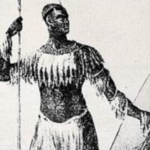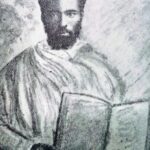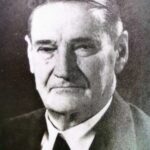SEBEHAT ARAGAWI
- 2 Min Read
Ras Sebehat Aragawi (186?-February 25, 1913) was descended from the ruling family of Sibagadis of Agamé, in Tegré, and was governor of Agamé for periods in the late 19th and early 20th centuries.
After his father died in the 1870s, Emperor Yohannes IV [reigned 1872-89] removed Sebehat Aragawi from the governorship of Agamé, and gave it to people who were strangers to the region. Offended by the loss of the family office, Sebehat rebelled, and successfully attacked some of the imperial officials. In about 1879 Yohannes appointed Walda Gabriel, Sebehat’s elder brother, as governor of Agamé. Sebehat was then reconciled to the emperor, and served as his brother’s deputy. On his brother’s death in 1887, the emperor appointed him as governor.
Sebehat fought well at the battle of Matamma in 1889, at which Emperor Yohannes was mortally wounded fighting against the Sudanese Mahdists (members of a messianic Islamic movement), and returned home together with Ras Mangasha Yohannes, the son of the emperor, who had succeeded him as commander of the Ethiopian forces, and who was heir to the throne. But Sebehat Aragawi soon clashed with Mangasha, and led a revolt in Agamé. Mangasha arrested him in 1891, and imprisoned him at Amba Alagé in southern Tegré.
He escaped from prison in 1895, and joined the Italian army, then invading Ethiopia. On February 12. 1896, however, he deserted the Italians, and joined Emperor Menilek II [ruled 1889-1913]. Later, on March 1, 1896, he fought in the battle of Adwa, at which the Ethiopian forces defeated the Italians. But he was only given a part of Agamé to rule after the victory, and was therefore offended. He then joined Ras Mangasha in rebelling against the central government in 1899.
The revolt was crushed, and he was imprisoned until 1909, when he was reinstated as governor of Agamé. He later quarreled with Dajazmach Gabra Selassé Barya, governor of a neighboring region, who had aspirations to gain control of Agamé and was killed in battle together with his two sons on February 25, 1913.
BAIRU TAFLA





